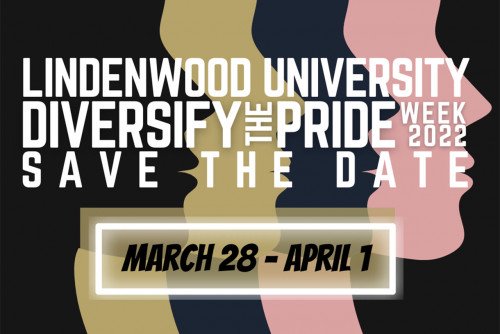
Diversify the Pride Week, happening March 28 through April 1, is a week-long series of events dedicated to supporting the mission statement of the university by providing a space outside of the classroom to support academic and intellectual inquiry.
Each day of the week corresponds with one of the University’s Diversity, Equity and Inclusion Pillars: Workforce, Client, Culture, Community. These events are geared towards students, staff, faculty, and adjunct faculty and registration is free.
March 28
Creating an Inclusive Syllabus
2-3 p.m., Computer Lab Room, LARC 124
A syllabus represents your contract with your students, and in many cases, reviewing the syllabus is a student’s first interaction with a course. Therefore, it’s important for your syllabus to reflect the inclusive environment you strive to create in your classroom. In this interactive workshop, participants will view and edit their syllabi while discussing best practices such as creating a promising learning environment, addressing accessibility, and reflecting diverse backgrounds in course learning materials. This session is geared towards faculty.
March 29
"MicroMessaging: The Power of Small"
11 a.m. – 2 p.m., AB Leadership Room, Spellmann Center
Stephen Young, author of the best-selling book, "MicroMessaging The Power of Small" provides leadership and diversity education specializing in unconscious bias awareness and training. He will cover the critical differences between unconscious bias, micro-messaging, microinequities and micro-advantages. Young takes the concept of unconscious bias and converts it into the tangible application of micro-messaging. This conversion is the only effective means for driving measurable behavior change. Young has worked with more than 350 companies in 35 countries, and more than 20 percent of the Fortune 500 companies have embraced his philosophy. After Youngs talk, participants will join in the CDI for a breakout session from 1 - 2 p.m. This session is geared towards faculty, staff, and students.
March 30
Include
3-4 p.m., Online
Chapman & Co. partnered with thought leader and experienced diversity and inclusion consultant, Fred Falker, to develop a fundamentally different approach that goes beyond unconscious and implicit bias training. Instead of focusing on the differences between people, Include focuses on the distance between people and the behaviors that drive connection regardless of the demographic make-up of your team, department, or organization. Relationships between people are at the core of inclusive environments. And it’s in the relationships between people where trust, understanding, empathy, and compassion thrive. When you leave, you will know what it means to be included; understand what is keeping us apart; recognize the impact of non-inclusive behaviors; and have specific behaviors to help your organization be more inclusive. This session is geared towards faculty, staff, and students.
March 31
Panel on the Collective Power of University and Community through Commitment and Partnerships
11 a.m. – 12:30 p.m., AB Leadership Room, Spellmann Center
Target audience: Faculty, staff, students, and community members
Michael McMillan, President and CEO, Urban League of Metropolitan St. Louis, Michelle Tucker, CEO of United Way, Jeanine Cotter, Lindenwood University VP of Business Development, and Scott Tate, Pres. and CEO of St Charles Regional Council, moderated by Emily Pitts CDO at Lindenwood will serve on a panel to discuss community engagement and partnerships surrounding diversity, equity and inclusion.
Socially Just Design in Postsecondary Education: Takeaways and Recommendations
3-4 p.m., Online
Join the Socially Just Design in Postsecondary Education PLC as they discuss their key takeaways from a seven-part series hosted by the Gardner Institute. During this session, you will hear about current barriers in higher education that can hinder students’ academic success. After discussing key takeaways, you will have the opportunity to collaborate with colleagues on ways to improve several practices at Lindenwood by choosing one of the breakout sessions described below. Our goal is to create a list of actionable items to help ensure that Lindenwood is working to eliminate the role demographic variables (i.e., race/ethnicity, family income, different abilities, etc.) play in predicting success at Lindenwood. Regardless of your role at Lindenwood, please join us as we discuss evidence-based approaches to make Lindenwood a place where students can succeed. This session is geared towards faculty and staff.
After a brief opening session, you will have the opportunity to choose one of the following breakout sessions:
- Socially Just Design in Gateway Courses: Learn about current unjust practices in gateway courses and collaborate on ways to improve these courses for Lindenwood students.
- Socially Just Design in the Transfer System: Discover common barriers and pitfalls in the transfer system and collaborate on ways to improve the transfer experience for current and future Lindenwood students.
- Socially Just Design in Academic Advising: Review possible barriers in academic advising and collaborate on ways to strengthen academic advising for Lindenwood students.
- Socially Just Design in Digital Learning: Find out about barriers in digital learning for non-majority students and collaborate on ways we can improve online offerings for all Lindenwood students.












